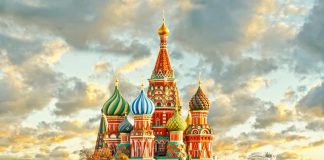The lost faith
Faith is a commonly used concept, but it is rarely understood in its rich semantics and philosophical implications. Christian faith rises above being defined by lists of doctrines, beliefs, moral principles, commandments, and liturgical rituals in the communicator's mind for its nature and content to be faithfully represented.
The tragic divorce
It is not the environment or the circumstances, but the concept of the meaning of life that is fundamental to the course of our lives. Life remains dependent on the value it holds in the mirror of the mind. The way we live is the visible messenger of the invisible inner man. Every form of action is born of faith, and every form...
God is love and that makes us eligible, as imperfect as we may be
We have trouble understanding and accepting the image of a loving God, as we have grown too familiar with the type of love that offers itself only when it finds in a person the qualities that make them easy to love.
Does religion cause war?
Does religion cause war? It’s a firm yes from British zoologist and vocal atheist Richard Dawkins, who sees a direct correlation between the two.
The love that whittles all my fears away
In a psalm that is worth reading on our coldest mornings and in our darkest nights, King David asked some rhetorical questions—“Whom shall I fear? Of whom shall I be afraid?”— questions which our contemporaries would not dare to answer.
Big moments
"Answer according to who you are, not who you would like to be,” the website tells me. The banner above this statement announces a quiz that will help me discover my spiritual gifts. All the personality tests I’ve completed in the past usually just remind me of some of my deeper characteristics. This test, however, is all about how I can apply who...
COVID-19 and the great question: Why?
The danger of the novel coronavirus has given us pause to reflect. As Christian believers, apart from praying, we are expected to examine and question our beliefs in this time, and to seek answers which are rooted in the perspective of the Holy Scriptures.
From Charon’s skiff to the tomb of Lazarus | Part 2
For many Christians, the belief that souls go to Heaven or Hell after death is a cultural legacy rather than a conclusion reached through personal analysis of the biblical text.
He believes and what he believes comes into being
Very few people have ever found rest in what they are and what they do. They are always seeking what they do not have and trying to become what they are not. These people talk about transformation, development and fulfilment but no matter their accomplishments or status, they are always thinking that they need to surpass their present state, that there is something...
My stellar moments
It is said that God works through people. I am convinced that the people evoked in connection with my stellar moments—and I really would have liked to name them all—each contributed, in their own way, to my reunion with Divinity.
Are Christians better equipped to make decisions?
"All your life long you are slowly turning this central thing into a heavenly creature or a hellish creature" through the decisions you make, wrote CS Lewis. If the choices we make really have such an impact, how can Christians make sure they make the right decisions?
Daniel: on the pedestal of history
On the pedestal of history, holding the flame of freedom—that's how the Book of Daniel has stood since it first appeared, more than 2500 years ago, and how it continues to stand today. It is a divinely inspired introduction to the book of Revelation, and together they represent the extension of the gospel beyond the apostolic generation up until the return of Christ,...
An American in Moscow: The story of a spiritual transformation
Andrew McChesney knew what he wanted—to be a famous journalist. He thought Moscow would be a good place to learn his craft and make a name for himself, which he did. But his years in Russia shaped his life in a much deeper way—it was there that he discovered God and found new meaning in life.
We are more than we can easily explain
Suppose I leave the window open then leave home. A stack of banknotes can be seen on the table through the open window. An individual walking down the street notices the opportunity, thinks for a while, but decides to move on. Why would a man who has the opportunity to steal decide not to?
Puritanism in the Protestant Reformation
Less than 50 years after the supporters of Martin Luther’s ideas in Germany were mockingly called “Lutherans,” England was in its turn discovering a derogative nickname—“Puritans”—which it applied to a category of Christians who disturbed the ordinary life of the English church and society.[1]


























